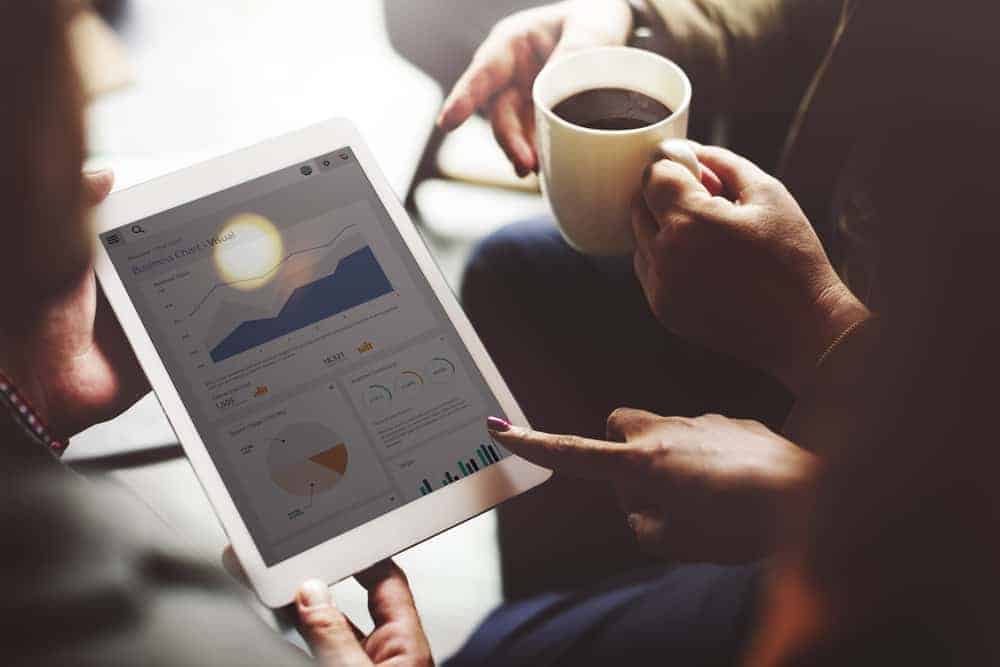Tax deductions for home office
As a business owner or director working from home, you can claim home office expenses. These expenses can reduce the amount of tax you pay at the end of the year.
There are certain conditions around tax-deductible business expenses for companies and Sole Traders so we recommend that you speak to your accountant about the expenses you wish to claim. Your accountant will calculate the allowable amount of business expenses that you can enter into your tax return.
In this guide, we go through some examples of home office expenses you can claim as a business owner/director.
Claiming home office expenses - how to separate personal and business use?
Home office expenses fall under the term “business expenses”, which must be wholly and exclusively for the purpose of the business. But what about expenses used for personal reasons and business reasons?
- No need to have two separate bills. In general, you need to estimate the percentage of reasonable business use and claim it as a business expense.
- Keep proper records of any expenses used for business purposes. We recommend recording transactions on online accounting software.
We go through examples of some home office expenses below, but if you would like specific advice on claiming expenses, get in touch with our Client Services Team who are here to help with queries.
Can I claim phone and broadband as a business expense?
If you use your home or personal mobile phone as a business phone, you can claim a percentage of this as a business expense.
You need to estimate the amount of time you use your phone for business and calculate a percentage of the business use. Once you have worked out a reasonable amount, you can claim this as a business expense in your tax return.

Purchasing a business phone
You may be entitled to claim the whole cost as a business expense if you purchase a phone with an unlimited usage plan.
For example, if you use the mobile to make business calls throughout the day and personal calls during the evening, the whole cost of the phone could be deemed a business expense. However, this is only an allowable expense if the personal calls are not costing the business any additional costs.
Is office furniture tax-deductible?
As a director working from home, purchasing equipment that is essential for your business duties is deemed an allowable business expense. This can be a laptop, printer, chairs, tables, stationery, etc.
Revenue states that if a company provides a telephone, broadband or furniture to fit your home office, there are no additional charges if there is incidental private use.
This means that you are allowed to use these items during non-business hours as long as they are considered to be reasonable business expenses in the first instance.
For example, it may be difficult to justify claiming an expensive sofa bed in your home office as a business expense. This is because it is more likely the sofa bed will be used privately rather than during business hours.
Speaking to an accountant can clarify what you can claim as a business expense in your home office.
Can you claim part of your mortgage or rent as a business expense?
In general, home rent or mortgage is not an allowable business expense.
Paying for your home is necessary for personal use. In other words, you would still incur the expense of paying for a home if the business didn’t exist.
It’s not generally recommended that a business owner claims rent expenses. You may have to pay personal income tax on these rent payments from the company into your pocket.
You may also have issues with Capital Gains Tax (CGT) when it comes to selling your property. This means there are generally no tax benefits to claiming rent as a business expense when you own your home.
Moving home?
A point could be made that you need to increase the size of your home to make space for a home office. For instance, you need to rent a larger home so you have space to run your business in an office.
For example, if a director currently lives in a 2-bed and has to move to a 3-bed to make room for a home office. This increase in rent could justify as a business expense. (Assuming the director does not move from one side of the city to a more expensive side of the city.)
Talk to your accountant before you claim rent as a business expense. They can give you more specific information that is relevant to your situation. If you don’t have an accountant yet, talk to our Client Services team about your needs.
Example of using home office rent as an business expense
Here’s what may happen if you enter a €5,000 rent expense in your company accounts:
- It needs to be reported in your Directors Return (Form 11) as personal income
- If you own the property and later want to sell it, you may lose part of your Principal Private Residence (PPR) relief. This is because Revenue will look for tax on any profit related to non-personal use of the property
- You need to pay tax on the rent you received from the company
Working from home allowance - AKA e-Working
Revenue recognises that working from home will incur certain household expenditures, such as light and heating. Employers can make payments up to €3.20 per day (2020) to directors/employees.
Income taxes, such as PAYE, PRSI, and USC, are not deducted from e-Workers allowance. This payment is on top of Directors/employees making specific business expenses, such as those mentioned above.
How to qualify for e-Working
To qualify for e-Working allowance, you must meet the following criteria:
- Working at home on a full or part-time basis
- Work taking place partly at home and in the business office
- Working while on the move, i.e. in different locations, and making occasional visits to the business office

Talk to us about claiming other expenses
Do you have questions about claiming expenses in your company? We can take care of your accounting needs to ensure you are compliant with Revenue and the Companies Registration Office (CRO).
If you would like to quote for our accounting services, please get in touch with our Client Services Team.
Frequently Asked Questions
[rank_math_rich_snippet id=”s-b69e8b88-5d09-4309-b82b-aa32113a38a9″]
Tom is a Fellow Chartered Certified Accountant (FCCA) and Chartered Tax Advisor (CTA) and is the Head of Accounting at Kinore. Areas of expertise include Accounting, Compliance, Taxation relating to small business and company directors.


